The Next Stage of Development
~ The Study of Threes ~
http://threesology.org

Visitors as of 1st Feb 2020
| Preface page 1 | Preface page 2 | Preface page 3 |
| Preface page 1b | Preface page 2b | Preface page 3b |
| ANC Prologue Page 1 |
ANC Prologue Page 2 |
ANC Prologue Page 3 |
| ANC Epilogue Page 1 |
ANC Epilogue Page 2 |
ANC Epilogue Page 3 |
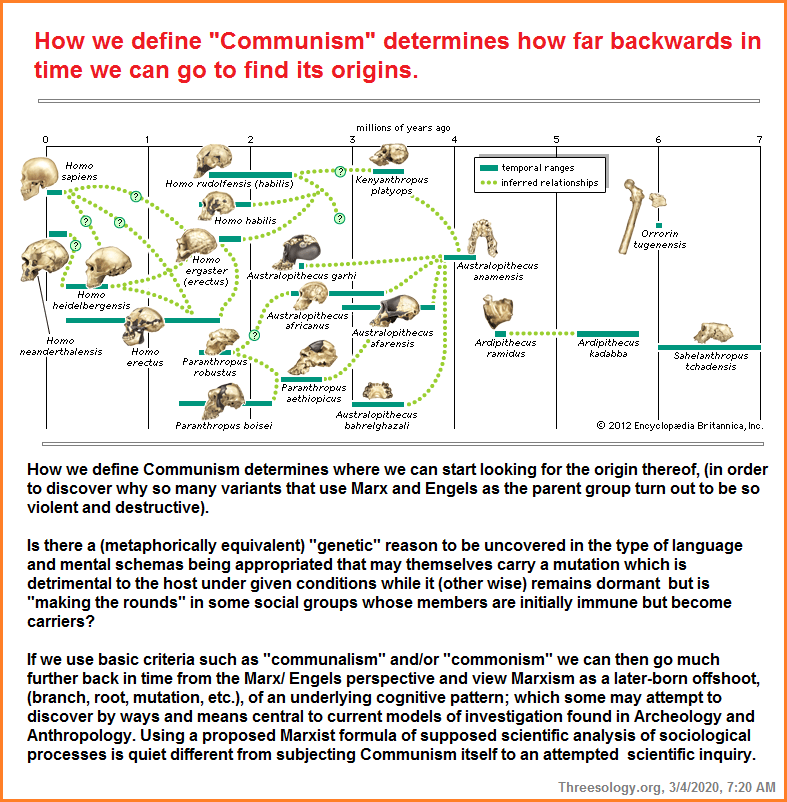
Note: I wrote the A New Communism series in the following sequence: The first 8 pages of the ANC, followed by the 8 pages of the Revelation then the 3 pages of the prologue followed by the 3 pages of the Epilogue, and then this page. It is not meant to be comprehensive, merely a summary of multiple ideas that can well be expanded and expounded on.
Initially I was given a $2500 (US) commission fee (from a group at the Cenocracy site) to do a 2-3 web page layout (approx. 25 pages) on a variation of Communism from an historical overview involving three-patterned correlations since my primary research interest is the "threes phenomena." (However, at present, the sponsors of this site have come up with their own idea of how to use the material and have been in contact with them with a sponsorship offer.) Because the Marxist-Engels doctrine has never made much sense and has in fact found disfavor amongst multiple analysts, I was confronted by a need to portray some relevance to the notion of Communism using its essential core attributes, namely "Communalism" and "Commonism" which refer to a shared equality which actually is Socialism, but is called Communism when viewed from a singular Marx and Engels perspective... even though some analysts discount Socialism as a type of government and more as a type of economic policy that is applied to Communism and other forms of government.
(Entry: 5:21 AM, 2/14/2020, Friday: In order to preclude any future misunderstanding for the inclusion of a monetary theme as part of the precursor discussion since many Communists hold an anti-Capitalism perspective and think it hypocritical to discuss Communism associated with a Capitalistic focus, the intent for the inclusion— as some astute readers have already made note of— is that it is being used as a literary device to alter the tempo of the material, as would be the case if some economic model were openly applied to a fairy tale such as Goldilocks and the three bears, three little pigs, Snow White and the Severn Dwarfs, Rapunzel, Old King Cole and his fiddlers Three, etc., or remove an economic theme from stories such as King Midas (whose touch turned everything to gold), Jack and the Beanstalk (selling a cow, bag of coins, golden eggs, golden harp), and those stories whose wealth was measured in such ways as (1) a lessen learn with wisdom gained, (2) living happily ever-after, (3) some Aesop-like philosophical moral, etc.
Since I customarily do not provide any details as to financial transactions involving the work I am involved with nor the very many anonymous players in the background, a momentary view 'behind the curtain' so-to-speak, is appropriate when speaking about a topic that has different vantage points from which to consider alternative ideation, just as when those with different levels of experience and education are confronted by the same topic or situation but address them accordingly. The inclusion of a monetary theme is intended to create a disposition in the reader to alternate the platform upon which they stand, or sit, or lay... or even attempt to project themselves over in a presumed astrally- displaced way (if not alternatively in more imaginative scenarios involving inter-dimensionality, below ground and other creatively defined vantage points). In other words, let me apologize if you feel the usage of an economically based (chess move) is an unusual digression from previous three-patterned discussions which create a disconcerting mood from which a misconstrued impulse renders the reader to a state of disbelief, which may have already arisen in those familiar with the threes research project but are not familiar with literary formats of stage propping.)
Both avowed Communists and Socialists mean well for humanity but have different schemes of trying to obtain some futuristic ideal state of social self-governing existence. However, all Communists and Socialists as well as other Socio-political, business and religious doctrines are obsessively focused on a means by which the paying of taxes, tithing and price tags can be rationalistically practiced to promote ideological orientations with a short-view, despite for example, the Chinese government's assertion of emphasizing a "long-view" approach to policies of governance. While it is a given that Socio-political doctrines contain an asserted analysis of economics, other subject matters are typically denied as being an important part of their equations. It makes little sense to have a business, government or religious belief that is little more than a rationalization that overlooks an ongoing incremental deterioration of the environment along with which humanity is being forced to adapt to and make ideological accommodations to, which eventually lead to the extinction of humanity. This is like paying tribute to one's executioner who often likes to use slow torturous techniques such as debilitating poisons. We need a different approach which will provide humanity with a realistic alternative.
All business, economic, government, religious etc. philosophies are survivalist mechanisms used as an adaptation to environmental/social 'currencies' of events. Like a banker with a given type of currency that is predominant in their vault, safe, or cash flow drawer (using a specific coinage or multiple coins, gold bullion, silver ingots, gems, armaments, commodities, paper money, medicine, labor, etc.,); the nature and liquidity of such determines the overall managing policies. In some cases it is best to put all one's eggs in a single basket and at other times it is considered best to be appreciably diversified. As values change due to desirability, need, and abundance— that may be necessarily restricted like the Alrosa and De Beers diamond market monopolization— the fact remains is that we are taking into account specific types of environmental conditions having an effect on social circumstances which may then alter the conditions of the environment. If we have bad weather for crops or diseases affecting livestock, governments must be flexible to make adaptive changes or find themselves forced up against a wall that may make them strike out such as with colonialism, Imperialism, tariffs, etc., in an effort to recapture control of a given market or market share. Most governments become so reliant on a given life style of product and productivity, they are not capable of making efficient adjustments to altering circumstances. The problem with all present day economic policies is that they fail to take into account all of humanity as the prime commodity that is being subjected to an incremental deterioration. Because it is incremental, most people overlook subtleties of change and will be caught with their pants down, so-to-speak, and will not be able to make the necessary corrections in policies which are rigid, despite imaginative rationalizations to the contrary. All forms of government existing today, are too rigid in their thinking to be of use for extending the territory of humanity beyond its planet, solar system and eventual galaxy.
As I pursue the study of "Threes", the fact that DNA has a triplet code which does not appear to evolve, suggests that we may be dealing with yet another three-ensemble partitioning event in that there are biological materials which do evolve, some that evolve slightly or intermittently, and those which do not evolve; all three of which can be viewed as expressions of environmentally-based economics. When we say that the genetic code is degenerate, it basically references that more than one nucleotide triplet may specify a given amino acid, just like DNA can specify for more than one type of organism... generally speaking. However, the fact that we have a situation in which the triple code does not appear to be evolving also suggests that there is something in the environment (or inside ourselves) which prevents it from evolving and in fact insists on the triple code being sustained as it is as part of some underlying necessity of "adjustable" equilibrium... so long as the conditions are able to be maintained by planetary processes. Yet, the planet Earth is also degenerate in the sense that it is incrementally deteriorating, and there is nothing humanity can do about it. We do not have the intelligence nor technology to sustain Earth's bio-friendly processes and materials indefinitely.
Hence, we are forced to face the need for developing an equation. Here are some variables:
- The Earth and the larger solar system along with the galaxy are undergoing an incremental deterioration.
- Despite the loss of species, the human population is increasing.
- A maximization of important grain crops has been reached or nearly reached.
- The resources of Earth are limited and finite.
- Human existence is depleting Earth's resources and creating enormous destruction thereto.
- The lifespan of Humanity can not be appropriately viewed analogically to geological processes and must therefore be cast in its own model of measurement similar to that being used for the "fruit" (vinegar) fly, notably Drosophila, used for genetic studies. There are life-span differentials that must be taken into account when considering geological and biological processes.
The end result of this equation is that humanity will either die off on Earth or some other nearby planet such as Mars, while at the same time replenishing the stock of Earth's resources at-at-distance through resource shipments (while resources last); or it must (1) leave the planet, (2) the solar system, and (3) eventually the galaxy in search of new hunting and foraging grounds, even though extended periods of living in space will most likely alter the genetics of humanity from which will be bred a new species whose consciousness will not engage in the symbolic reproduction of Earth-centered environmental influences. All forms of present day businesses, governments and religions will be a thing of the past and will no longer be viable forms of rationalized survival mechanisms.
Entry: 4:20 AM, 3/1/2020, Sunday
Although mentioned elsewhere in different contexts, we need to add the variables concerning the falseness of our democracies and other forms of government/economics to the equation, including the diversification of businesses and religions; all three of which can be viewed as different species, though some readers might assert defining them in terms of being different species of mind- heart- spirit, mind- body- soul or some other triadic assortment of personalized disposition.
In other words, the point to be made is that the usage of a biological model can help us ascertain a perspective that we often overlook with respect to how many different formulas of democracy have been (and are) being practiced as if they are (metaphorically speaking) the variations in beaks noted in the numerous species of finches in the Galapagos Islands due to different environmental realities. The difference in beaks can be compared to the different types of survival economics being used by different nations and their assertion for using a particular form of government that may have a similar name or label as other nations use but is appreciably different in functionality with respect to a given environment where resources used for trade and personal consumption can differ greatly.
Just because we call a specific type of bird a Finch, and a specific type of government a Democracy or Socialism or Communism, etc., or a specific business a small, medium, or large operation (etc.,), or a specific religion a Jesus-based ideology, or an Islamic-based ideology, or a Judaism-based ideology, or a Hindu-based ideology, or a Buddhist-based ideology, or a Pagan-based ideology, or a Natural philosophy-based ideology, or a Shinto-based ideology, etc..., simply means we are dealing with some supposed (rationalized?) fundamental structure underlying the externalized differences put into practice. Similarly, because we denote a widespread existence of a triplet genetic code in all living things, many come to claim some universality as if we have uncovered some fundamental truth... other than the fact that most people come to accept the idea of a Universality and do not question whether it is a reflexive adaptation to changing environmental conditions which are forcing a widespread adaptation to think similarly, as a type of survival mechanism, just as many have come to accept the notion of a single god, or the singular idea that there is no god, or the question of a god is irrelevant to the idea of spirituality... a behavior that many Communists stupidly reject and are therefore out-of-step with understanding developmental human cognition which must be a part of any attempted "New Communism" theorizing.
The discovery of fossil bones from large extinct mammals in Argentina and the observation of numerous species of finches in the Galapagos Islands were among the events credited with stimulating Darwin's interest in how species originate. In 1859 he published On the Origin of Species by Means of Natural Selection, a treatise establishing the theory of evolution and, most important, the role of natural selection in determining its course. He published many other books as well, notably The Descent of Man and Selection in Relation to Sex (1871), which extends the theory of natural selection to human evolution.
Francisco Jose Ayala: Donald Bren Professor of Biological Sciences, University of California, Irvine. Author of Evolving: The Theory and Processes of Organic Evolution and others.
Source: "evolution." Encyclopædia Britannica Ultimate Reference Suite, 2013.
(Darwin's Finches are a) distinctive group of birds whose radiation into several ecological niches in the competition-free isolation of the Galapagos Islands and on Cocos Island gave the English naturalist Charles Darwin evidence for his thesis that "species are not immutable." (Meaning they can change.) The three genera (Geospiza, Camarhynchus, and Certhidea), including 14 species, are placed in the songbird family Emberizidae (order Passeriformes) and in a distinct subfamily, Geospizinae. All are 10–20 cm (4–8 inches) long and of brownish or black coloration; they differ greatly, however, in the configuration of their bills, which are suited to their diverse feeding habits. Two species—the woodpecker finch (Camarhynchus pallidus) and the mangrove finch (C. heliobates)—use cactus spines to probe for grubs.
Source: "Galapagos finch." Encyclopædia Britannica Ultimate Reference Suite, 2013.
The above insertion bears the responsibility of providing the reader with more information:
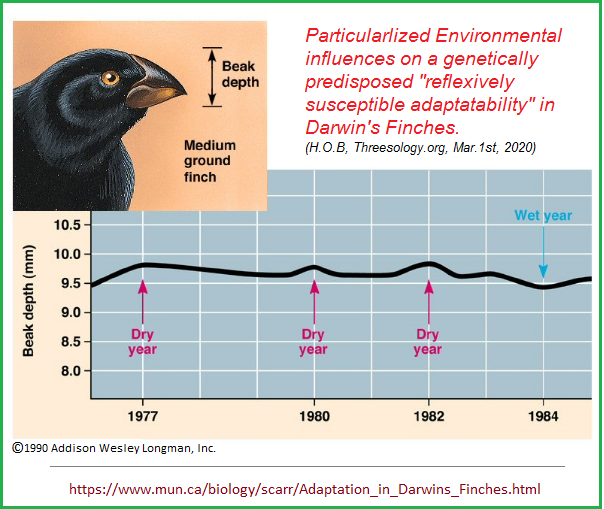
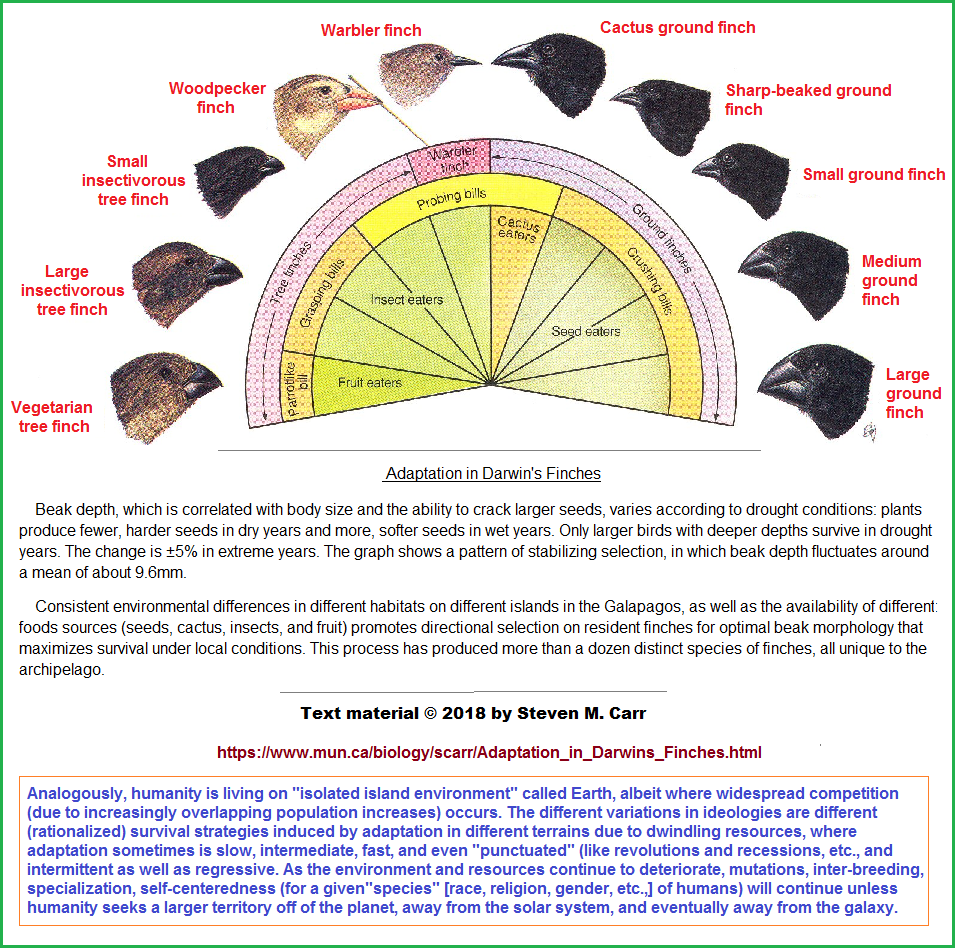
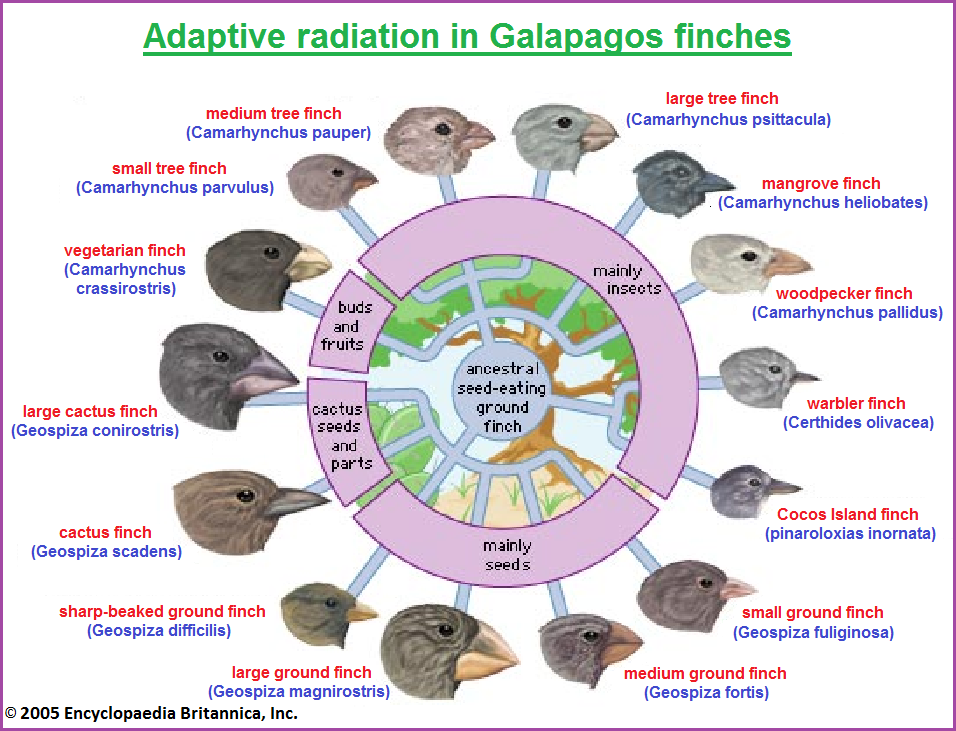
Note: when I speak of a "strategy" in the sense of an evolutionary outcome I am not suggesting that there is some consciously applied effort to develop a particular structure as one might deliberately build a structure. Surely the finches did not actively set to develop a given beak structure with a conscious intent. Similarly, though humans have been known to do multiple actions on a deliberate basis, or at least take credit for something after it occurs and one is involved with it by choice or chance, many ideas may nonetheless be the result of a non-deliberate result as one might conclude many a creative idea occurs rather spontaneously, though there may be some unconscious mechanism(s) providing the impetus.
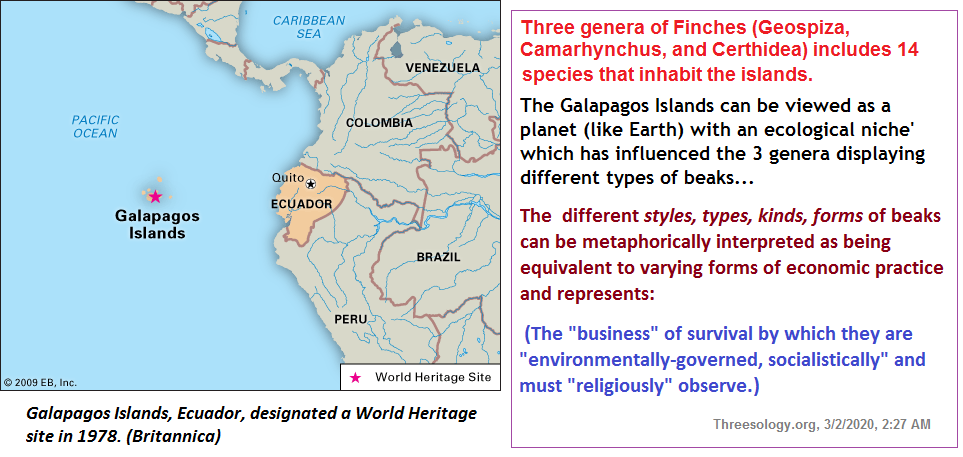
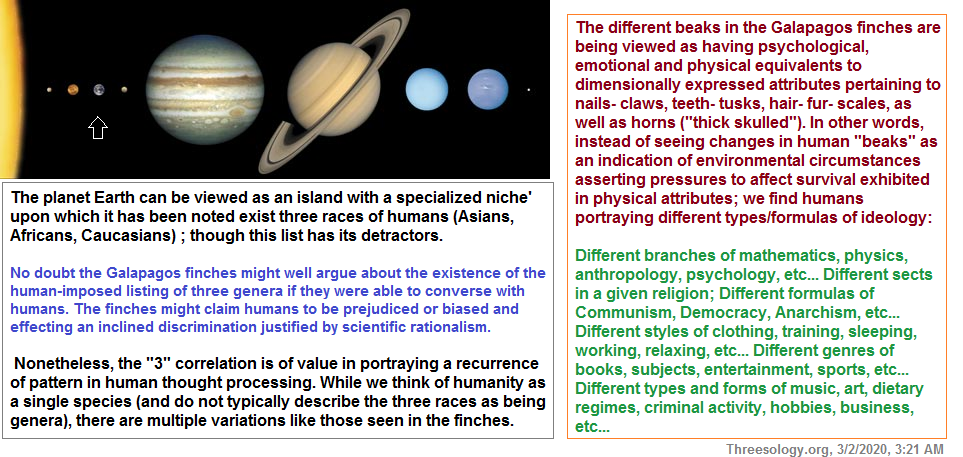
It should also be noted that instead of a differentiated beak change in humans, analogous accouterments can occur in different habitats equivalent to changes in teeth, nails horns, hair, eye sight, strength, height, intelligence, memorization, fertility, etc.; some of which can be viewed as behaviorally expressed psychological dimensions of dedicated patterns found in the different types of growth, stuntedness, of loss thereof, which may be adapted to sociological applications. While it is not too uncommon to find views related to a defined "arms race" among different species, often defined in terms of making one more viable for sexual reproduction, this does not apply as THE determinant factor with all humans. Whereas the "arms" may be an ability such as memorization, guitar playing, singing, leadership role, working out complex math problems, etc., many things humans do are not particularly focused specifically on making a person more sexually potent or reproductively pertinent in a given environment.
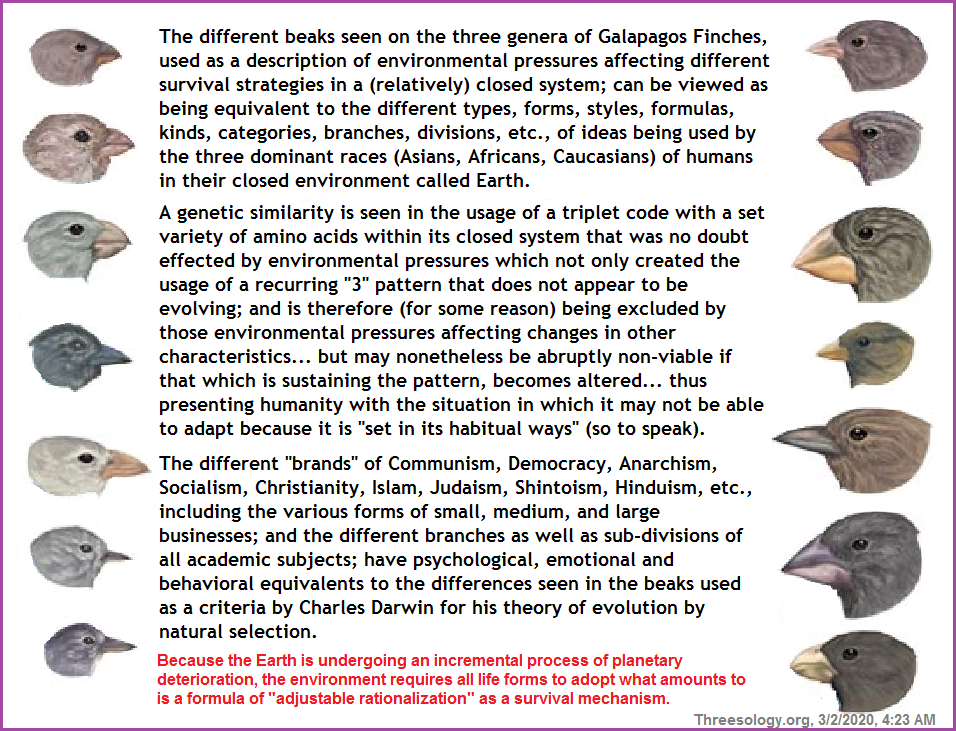
Many, many, many people feel that sex is over-rated and plays a very small if not insignificant interest in the lives of numerous people. They often find they have to develop strategies to make themselves appear undesirable so as to be left alone to pursue other interests which take up a lot of their time, energy and concentration. Whereas defining the behavioral dimensions equivalent to an "arms race" may have been a decidedly recurring theme in the early primate ancestry of humanity involving reproduction and various behavioral preoccupations (fertility cults, sexual orgies aligned with mystery cults, and the current silliness of the matriarchically-oriented LGBTQ cult [lost girls and boys totemic quorums] where females name and place themselves at the head of this totem family); many humans today find the "socialized sexual theatrics" (often histrionics) a nuisance and would prefer to be absent this expected trait of exhibition without having to provide some excuse such as marriage (without sex), celibacy, work, training, traveling, isolation, retreat, studying, etc., so that other physical and psychological attributes might develop with a greater pronouncement whether as a compensation for the loss or lack... or otherwise. They want to be better than a human or at least different from the commonality which has not served overall humanity very well except to create a cycle of repetitive nonsense.
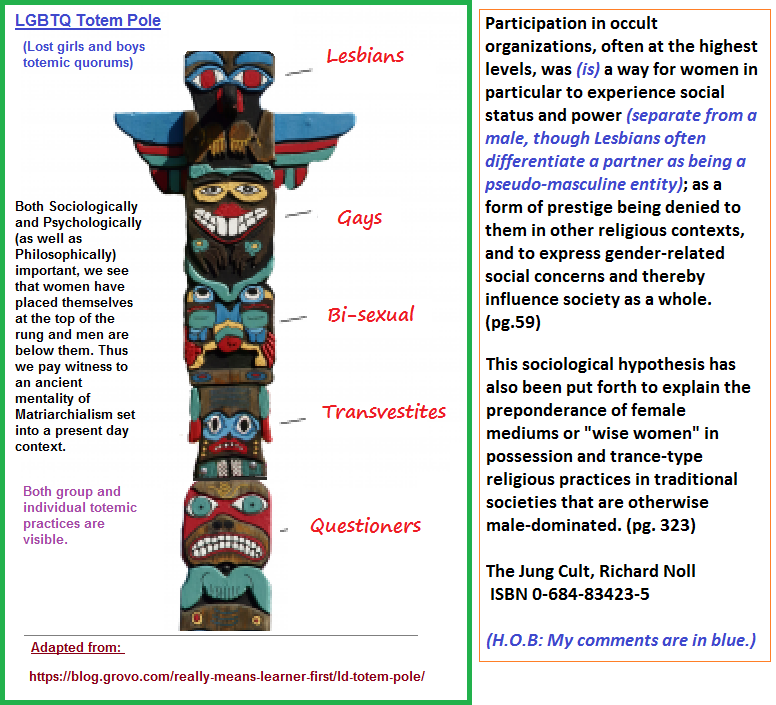
When speaking of differentiation such as those found in varying ideas about what is the best model of Communism (or Democracy, Socialism, Economics, business, game strategy, religion, Architecture, art, music, meal preparation, etc.,), the usage of a biological model to provide a means by which the different ideas can be aligned to a proposed measuring tool which assigns them to a classification (taxonomy) would be helpful just as it has been in the study of botany, zoology, and microbiology, each of which has a separate international code of nomenclature, and for the most part, though not without revision, biologists use the Linnean system. Human beliefs, ideas, notions, impressions, suggestions, etc., need a taxonomic nomenclature whereby a hierarchical ranking can be established, if for nothing else, to identify it as a biological characteristic which is subject to evolution. Whereas Darwin noted that "species are not immutable"; from which eventually came the idea for Evolution, this same criteria can be applied to different beliefs, ideas, suppositions, etc... They are an extension of evolution on biological events leading to derivatives, both viable and short-lived.
By recognizing the biological nature of ideas and noting that the Earth's environment— in a solar system— in a galaxy are themselves not immutable; understanding Communism with its many variants as a type of organism will enable us to better recognize a change in human cognition in response to the incremental deterioration of the Earth. The idea of "gradualism" to explain changes in some ideas may be pertinent in some instances, but the existence of sporadic changes due to protests, revolutions, recessions, depressions, climate upheavals, diseases, wars, etc., also provides an argument for "punctuation", mutation, intermittentcy, as well as regression and jumps. It is as if the mobility (and sometimes immobility) of humans (sleeping, walking, jogging, skipping, jumping, diving, twirling, vaulting, etc.,) are behavioral expressions of what occurs in evolution. It is of interest to note that we humans at present reduce all taxonomic systems to a "basic" 3 life domains classification: Archaea, Bacteria, Eukaryota. The usage of a "Threesological" approach to categorize different ideas is a similar orientation, though I did not consider this specific idea so many years ago when I first began a journey along the path of cataloging various "threes" examples which has now included other patterns as well.
In as much as many Communists (such as Marx and Engles) professed their idea to be based on a "Scientific" approach, the usage of science in analyzing the role in which Communism may have played in the past, does play in the present as well as whether or not it will be of value in the future, should be embraced. Just because I do not use the conventionalities of most Political Science and Sociological investigations does not diminish the effort's intent of systemtization and overall examination and evaluation from a different vantage point.
Marx, began to lay the theoretical and (he believed) scientific foundations of communism, first in The German Ideology (written 1845–46, published 1932) and later in Das Kapital (1867; Capital). His theory has three main aspects:
- First, a materialist conception of history;
- Second, a critique of capitalism and its inner workings;
- Third, an account of the revolutionary overthrow of capitalism and its eventual replacement by communism.
Terence Ball: Professor of Political Science, Arizona State University, Tempe. Author of Reappraising Political Theory and others.
Richard Dagger: Professor of Political Science, Arizona State University, Tempe. Author of Civic Virtues: Rights, Citizenship, and Republican Liberalism and others.
Source: "communism." Encyclopædia Britannica Ultimate Reference Suite, 2013.
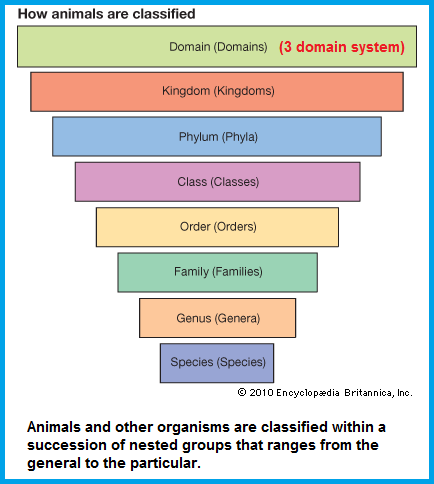 |
Can we, or should we use a similar taxonomic model in the analysis of Communism (and all other ideas) with the intent of discovering definitives, mutations, overlooked "growths," and other variations from a "parent" group that is at present being defined by some as being Marx and Engels; but may in fact have an earlier origin if we would only learn how to enlarge or appreciation of the "fossil" and other records of human cognitive processes? At present, comparative Communism, and overall Political Science as well as Sociology are steeped in a tradition of collecting old ideas (via status quo traditional methodologies) as if they were prized museum quality relics, but are not looking for much less generating new life forms thereof. Advocates are metaphorically acting as little more than neurotic hoarders of old newspapers, magazines and telephone books placed in a small living space through which one can barely navigate; like a trailer home in which multiple dogs or cats are being kept in unhealthy conditions. There is so much trash, territorial-marking feces and urine stains in current Political Science, Sociology and Feminism we are in desperate need of a Revolution in Ideology, but are faced with in-house constraints which resemble autism but are academically-generated formulas of village-idiot savantism. The current Lgbtq and Feminist orientations are part of the disgusting entrenchment of stubbornness (called "woman's prerogative") in refusing to recognize they are not moving humanity forward but sideways in a backward motion declared as being a product of a neo-pagan ancient wisdom ... dictated by some antiquated wanna-be matriarchal revivalism symbolical aligned with the notions of effecting a self-important virginal re-birth which is egotistically embraced as some supposed superior ideation for the good of humanity.... so long as they (hypocritically) are its path-finding leadership. |
|
A fundamental shift in protozoan taxonomy occurred in 1990, when American microbiologist Carl Woese and colleagues revolutionized the world of biology with the three-domain classification system of life. Based on sequences of rRNA (ribosomal RNA), molecules present in all organisms as part of the protein-manufacturing machinery, Woese's classification system revealed three major evolutionary groups of life on Earth, one of which is eukaryotic (the Eukarya) and two of which are prokaryotic (Eubacteria and Archaea). It is generally accepted that the Eubacteria (now Bacteria) are the most distant genetic group of the three. The three-domain system has largely replaced the previous five-kingdom system of American biologist Robert H. Whittaker, which is based on morphology (e.g., mode of nutrition) rather than phylogeny (the history of the evolution of a species or group). Classification within the domain Eukarya also experienced a shift from morphology-based approaches to an emphasis on phylogenetic relationships. Based on this advance, the former eukaryotic kingdoms Animalia, Plantae, and Fungi are no longer separated from protists. Instead, each of these major groups of multicellular life are classified within the supergroups of Eukarya along with protistan groups. For example, plants are classified within the supergroup Archaeplastida, alongside some examples of unicellular algae, and the animals and fungi are classified within the supergroup Opisthokonta, along with single-celled choanoflagellates. Current scientific approaches have produced a nested yet non-hierarchical picture of biological classification, in stark contrast to the hierarchical scheme of Linnean taxonomy, which specifies somewhat arbitrary universal ranks of classification (e.g., Kingdom, Phylum, Class, Order). This development has caused many biologists to abandon the Linnean system, primarily at the higher levels of classification, rather than at the genus and species levels. The validity and utility of the Linnean taxonomic approach continues to be a source of debate among biologists. Major developments in the classification of protists in the 1990s and early 2000s did not use hierarchical schemes. Protistan systematics remains a subject of debate and change. Protists comprise a large and sometimes unwieldy assemblage, and assignments of species to particular taxa change as new genomic approaches, biochemical techniques, and electron microscopy studies provide more details on the affinities of various species. | |
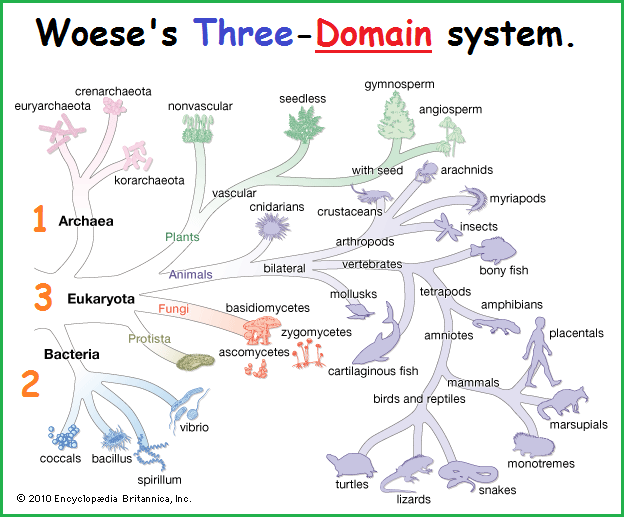 |
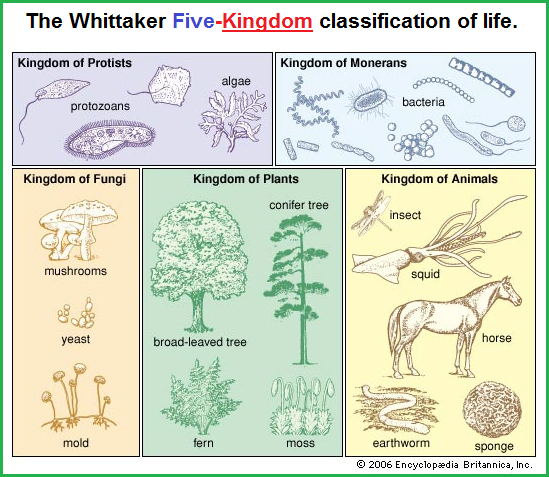 |
With the foregoing scenario (equation) in mind, it is of value to contemplate the requirements for humanity in order to achieve the monumental task of getting humanity off of Earth and out of the Solar system. Yet, under current technologies it will take years, just as it took the ancient Egyptians (and others) years to construct their pyramids. To leave the Earth as one might conceive of a Biblical arc or multiple ships of explorers seeking a new world, the combined resources of Earth, including its human resources, will need to agree on a commonality and communality of purpose. And this is where A New Communism comes into the picture. However, erecting a Communist government as one might envision it in terms of a Marxist, Marxist-Leninist, Trotskyism, Stalinism, Mao, Castroism, etc., is the fantasy of a fanatic. It is woefully out-of-step with what is presently being described as a means by which the overall goal of getting the whole of humanity off the planet necessitates. No flavor of Communism, Socialism, Democracy, Anarchy, Libertarianism, Coporatocracy, Militancy, Religion, Business creed or spiritual philosophy is the goal. All of them are little more than stepping stones to achieve the goal. Attempting to make any one of them an enlarged stone upon which to plant the species is akin to the usage of a biological model wanting to increase the presence of a life form, such as a lily pad grove and claim them as separate stones upon which to step forward though they are kept in a revolving circle so as to disguise the repetition. Increasing the size of the revolving circle does not provide an out-of-sight... out-of-mind perspective for everyone.
By simply labeling Communism as Communalism and Commonism, a new definition is identified not as a goal, but as a means by which a collective goal may be reached. Conditions on Earth are forcing humanity along such a course making it necessary for us to implement considerations long before humanity will have its full back up against a wall. If humanity has not taken steps to prepare for the eventuality of implementing a global Communism in concert with a global space venture... as a means to achieve a goal which is not a Utopia (except from the eventuality of a growing resourceless planet); it may be faced with the inevitability of its own demise. This demise will be brought about by a continuing increase in the degeneracy of the human ability to reach beyond the stars, because equilibrium on a dying planet will force the species to conserve its energies— which the human brain is a high energy draw thereof— hence creating ideas (such as all religions) which are rationalizations that assist in binding humanity to the planet.
Indeed, the fact that the three so-called "great monotheistic religions" arose in desert environments should signal to everyone that the interpreted "wealth" and "riches" and awaiting (heaven/paradise) "fortune" of Christianity, Judaism, and Islam are compensatory intellectualizations attempting to fill voids in basic needs and desires. However, this reality— this sobriety, is no reason to reject the existence of a "spirituality" as part of a cognitive phenomena spanning many centuries as part of a developing brain that a New Communism must approach and respond to in a mature and magnanimous way so as not to isolate and ostracize many billions of people from an effort to create a more fulfilling governmental exercise that is not THE goal, but a stepping stone to a goal that may not be defined either appropriately or appreciably until many years after humanity has journeyed from this solar system, if not the galaxy. We need not be bull-headed about religion (in the larger sense of the phenomena of an observed spirituality however it is named and practiced).
To deny the existence of spirituality simply because one rejects it on one another grounds of primivity; regardless of one's own personal "feelings," is like rejecting the experiences of an amputee's phantom limb phenomena which many have. Similarly it is like a doctor who refuse to recognize a patient's claims of claustrophobia and subsequently treats them as a child afraid of something under the bed, staircase, closet or other dark or confining space, without having any sensibility nor sensitivity to the psychology of children experiencing a brain development which appears to trace along paths of growth which primitive humans engaged in but did not move far beyond. Hence, the idea that the human brain experiences primitive orientations through its childhood development is a well-known consideration in and out of academic hallways. In the latter (insensitive Physician's) respect, Marx had a poor bedside manner with respect to the question of spirituality labeled as religion that it is said he claimed it as an opiate of the people and the novelist Charles Kingsley inadvertently added to this expression that the bible was "an opium-dose for keeping beasts of burden patient while they were being overloaded” ("Christian Socialism." Encyclopædia Britannica.).
An out-right rejection of religion or any spirituality (which is not compounded by the breaking of laws injurious to others) —leading to the implementation of laws against a practice thereof, is appreciably ignorant. It is like trying to abruptly wean a child off of a bottle or an addict off of a drug through a "cold turkey" process when in many cases the transition can not be abrupt but must affect the adoption of a less damaging alternative addiction (such as that displayed in Alcoholics Anonymous which substitute the addiction of alcohol for a "fellowship" that practices a social and spiritual belief system akin to a religious ceremonialism) that is claimed to be non-sectarian but nonetheless gives evidence of exhibiting a cult-like mindedness, just as all groups do in their own way. Effecting an abrupt withdrawal for a single person who wants to be "cured" and freely relinquishes control of their life to be subjected to a controlled environment, is much different than trying to do the same for millions who don't want to give up their addiction and object to being forced to giving up personal freedoms at the same time so that someone else's belief can be practiced to suit their personal philosophy.
With this said, one should note that the practice of Capitalism is a "drug of choice" for many people (just as are the old formulas of Communism); and other people are simply a victim of the many types of habituating systems that they are forced to adopt and accommodate to with varying levels of addiction in order to survive in the system as it is (because that is the way things are and they either do not know how to change it, are afraid of assenting themselves to change it, or do not see a viable alternative nor support). Weaning people off of the many damaging forms of Democracy and other governmental practices can be affected transitionally through a wise (but often excruciatingly slow and monotonous) law-making process or even abruptly through violent protest and revolution; but a plan must be made. You must have a blueprint and not simply some jotted impulsiveness on a coffee shop table napkin. A plan of doing something just to see what transpires is the thought processing of an adolescent who does not understand consequences. A New Communism must have a plan which is understood from different perspectives and can be incorporated by the people to effect the desired changes. Because Revolutions are typically effected by a small number of people and not the entire nation (though many a revolutionary claims that the populace stands behind them), a New Communism has little value for armchair philosophers that pretence an advocation but are actually wait-and-see opportunists who push from behind those who are the impassioned avant-garde and would give their lives for a Cause thought to be larger then themselves as well as their destiny to participate in.
Date of Origination: Saturday, 1st February 2020... 5:52 AM
Initial Posting: Saturday, 1st February 2020... 12:19 PM
Updated Posting: Sunday, 18th October 2020... 5:16 AM
Herb O. Buckland
herbobuckland@hotmail.com